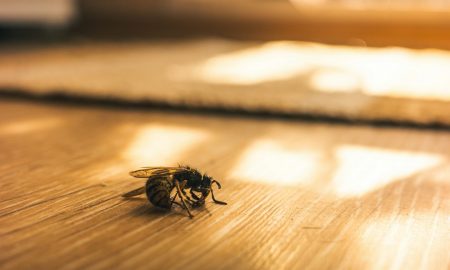No matter what the shitty people say, I love my children.
My three children.
Joshua and Eric, they are good boys. Boys are easier. The boys don’t give me much trouble. Of course, Eric is spoiled, but he is small and doesn’t know. Joshie is my best. Joshie tells me, “Mommy, I love you so much.” He doesn’t forget the garbage or his laundry. When I say, “Mop the floors!” Joshie mops the floors. When I say, “Vacuum the car. Now!” Joshie vacuums the car. Maybe he will hug me when I inspect to see that he has not slacked with the vacuum. He needs to use the crevice attachment–I tell him and tell him every week. If he is finished too soon, I know he has not used the crevice attachment. Even when he hugs me and loves me, I know. Then he needs to clean the car again. Joshie is a good boy.
But Ava, Ava is so lazy. Ava sits on her bed for hours doing her makeup. Playing with her games. Texting on her phone. Ava did not walk Missy, but she says she did. Ava did not clean the downstairs bathroom, but she says she did. Ava’s dean e-mails me:
“Ava is behind on her assignments.”
“Ava is disrespectful to her algebra teacher.”
“Ava is in danger of failing the semester.”
Ava left her wet towels in the bathroom this morning. Such a lazy girl! I tell Ava, “Give me your phone.” Ava turns away from me. Ava disrespects me. “Give me your phone!” I need to turn Ava toward me, toward her mother whom she must respect because I do everything for her. I take a handful of Ava’s thick dark hair. It is oily in my hand. Ava needs to be cleaner, better. Her hand loosens on the cell phone. I have Ava’s cell phone now. She will walk Missy. She will clean the bathroom. She will launder the towels. I have her phone. A cord of her lanky hair is woven into my rings. Daughters are harder than sons.
Joshie and Ava and Eric are late for school this morning. Joshie stays in his room with his Air Pods. Eric sits at the table with his bowl of Captain Crunch. He has picked out all the marshmallow pieces to eat in one mouthful. I scoop them into my hand and throw them in the garbage disposal. Ava is in the bathroom. Nobody asks me how I am, how I feel with the Covid making me sore and headachy and nauseous. Not one of my children cares about me.
I tell them, “In the car now! I am not waiting for you this morning.” I stand in the driveway in my pajamas and robe. One by one, my children come out, walking slowly when they should be rushing. Eric does not have a jacket. Ava´s eyes are lined and purple-shadowed with the makeup she obsesses over. Joshie with the Air Pods does not look at me. The fog makes the air cold, and my bathrobe is not warm. They are so selfish! I tell them, “Fuck you! You can walk to school.” I do not want the neighbors to see me. I go inside and lock the door behind me. So selfish, my children. I take four ibuprofen and go back to bed.
“Mommy.” Joshie enters the kitchen where I am having coffee with Courtney, my neighbor from two doors down. Courtney bubbles when she speaks. She has no children, so she can prance around the neighborhood having coffee and a cheery chat whenever she pleases.
For once, Joshie is not wearing his Air Pods. He puts papers down on the counter, next to my new coffee cup from Pottery Barn. Courtney admired the cups, so I told her, ¨Only ninety-nine dollars for six.¨ I could not pronounce the words clearly because my mouth hurt. The plastic retainer the dentist insists I wear before I can have my veneers cuts into my upper gums.
I say again, so loudly that Courtney startles, ¨Ninety-nine dollars!¨
Ninety-nine dollars for six cups is seventeen dollars apiece. Courtney could figure that out if she wants, that her neighbor serves coffee in seventeen-dollar cups. I want to tell Courtney how much my veneers will cost. It is impressive to say, ¨Twenty thousand dollars!¨ But I will save that for later, maybe when Courtney´s papa gives her another car or a five thousand dollar check just because he loves her. ¨Daddy´s money, ¨ I said to Courtney when she showed me the new Prius, sparking blue like Courtney’s eyes. For four months after, she would not talk to me, only to Ava. Thin-skinned Courtney is.
“What´s going on?” I ask Joshie about the papers. Courtney smiles at Joshie. Courtney, childless, doesn’t know how hard it is to raise three children, how impossible it is to raise children without suffering tempers. Courtney thinks being chirpy and silly is enough to bond with children. She has no idea.
Joshie shrugs his backpack from his shoulders. He does not drop it on the floor. Good boy. “It’s for Driver’s Ed. For next semester. You need to sign, Mommy.”
I hear Ava upstairs in her room. She has dropped something. I push the papers aside because I do not like to waste my time reading. Driver’s Ed can wait. Joshie can read to me later, after Courtney is gone, after dinner. Now I ask Joshie to go get Ava, to see what the banging upstairs is about. I did not give Ava permission to rearrange her room, but I do not want to go upstairs now. Besides, Courtney is here, drinking coffee and tracing the lip of my Pottery Barn coffee cup with her little finger.
Joshie slings his heavy backpack onto his shoulder and goes upstairs. He will put on his Air Pods and stay behind his closed door for hours until I ask him and Eric what they would like for dinner: Burger King or Taco Bell. I am not cooking tonight. The boys prefer the drive-through meals to mine, so I don’t have to cook. And my sons are pleased with their Oreo milkshakes and curly fries.
Yesterday Ava made macaroni and cheese when I went to my dentist appointment.
“What are you doing?” I asked Ava when I came softly into the kitchen from the garage.
Ava dropped a glass bowl—lucky for her not one of my Pottery Barn dishes. It shattered on the tiles of the kitchen floor. Ava was standing barefoot in a field of shards, her head lowered. Her hair was still greasy, always greasy.
“You drop things because your fingers are so fat! You don’t need macaroni and cheese!” I take the pot from the stove and scrape the macaroni into the sink. “Run the disposal.”
Ava raises her head. “But you put the macaroni in the sink.”
“Do what I say.”
“You put the macaroni in the sink. You should run the disposal.”
This is what the shitty people do not understand. No daughter should speak to her mother like that, disrespectful and belligerent. I do everything for my daughter. I give her a home with her own room. I drive her to school and buy her clothes. I pay for her retainers and for her glasses. I take her on vacations. I feed her when she needs to be fed—Ava is heavy and eats too much, so I must be careful with food around Ava. Ava needs to be thankful to me.
“I’m doing you a favor.” I make snort sounds like the pigs my baba kept in the barn behind her house. Snort snort. “Pick up this glass. Go upstairs and wash your hair. Mop your floor.”
Ava looks sideways at me. “My room has carpet. How do I mop a carpet?”
It is not my fault that Ava causes my tempers. When Ava talks back, my tempers talk louder. I tell Ava she is a lazy, dirty, stupid girl. I tell Ava I should have aborted her. I tell Ava I do not want her any more. I tell Ava to go live with Courtney. Sometimes I do not remember what I say during a temper. Ava stays in her room for the next two days. I do not feed her. She can feed herself. It’s good for Ava to learn to miss all that I do for her. I keep her phone and do not speak to her. Ava will be clean and tidy and respectful and thin. She will learn.
At first, I do not understand what the lady at my entryway is telling me. She stands well back from the door. I answered the door only because I thought it was Fed Ex delivering the boots from my Amazon order. The lady’s highlighted hair is curly; her glasses are magenta. She wears flat shoes and black slacks, probably from the racks at Target or Walmart. I want to shut the door in her face because I do not understand what she is saying. Then I hear “CPS.”
“May I come in?” the lady asks. She wears a lanyard with her name: Christine. She smiles at me. Her eyes crinkle, but I know better than to trust such a smile on the face of a lady who is holding a briefcase.
I stand back from the door. Christine will see how spotless my house is, how the counters sparkle and the appliances gleam. She will see how clean I keep the house for my three children. She will see there are eggs and milk and bread in the refrigerator. She will see that my haircut is expensive. I will show Christine every corner of my clean house so she will be pleased, and I will not have to move house again. And then I will find out who called CPS, the shitty person who can’t mind her own business.
I knock on Ava’s door, then push it open. Ava is sitting on her bed, her phone in her lap. I hold a bag with a burger and animal fries. “Here,” I say as I hand the bag to Ava. “I got this just for you.” The heavy smell fills Ava’s bedroom. That perfume is irresistible to my children. I wait for Ava to say thank you.
“You’re welcome,” I say when Ava will not look at me. She opens the bag. I give her a kitchen towel because the animal fries are messy. I do not want grease or ketchup on the bedspread. “So, who are you talking to at school?”
“What?”
“Who do you talk to? Teachers, counselors… Molly?” I say Molly but I know Ava and Molly are not friends any longer. Ava cannot keep a friend. “Were you talking to Molly?”
Ava shakes her head. She sets the fries in her lap, where she has made a tablecloth with the towel. She eats her fries. Ava eats deliberately. She never rushes; she never leaves a crumb.
“I told you not to talk with the counselor. Didn’t I tell you not to talk with the counselor?”
“I didn’t talk with the counselor. I wouldn’t.”
Ava is an expert liar. I can’t tell if her words are the truth. When Ava was seven, she cried in front of the counselor at her old school. That is when CPS came to the door for the first time. And that is when we had to move house and the children moved schools. The neighbors had seen the caseworker with his tatty sweater and his briefcase and his folders, standing there at my front door. The neighbors knew CPS had come to my house. That is when we had to move.
“Then who did you talk to?”
Ava chews and shrugs.
Ava raises her hand to her lips. I hold her wrist and tighten until the animal fries fall onto the dish towel.
“Who, Ava?”
“You should talk to Courtney.” Ava pulls from my hand.
“Courtney.”
Ava bows her head. My daughter will not look me in the eyes. I gather the fries and take the remnants of the burger from Ava’s lap and stuff them into the bag Ava had flattened into a plate. My daughter knows better than to ask for her food back; at least there’s that. I stand and leave the room.
Courtney.
When we were new to this neighborhood that I love so much with its gated entry and its identical two-story homes, we were the same as everyone else. My neighborhood has matching lawns, even matching trees in the same corners of our front yards. From the outside, we are all equal. We are all equal until we let our neighbors inside. And that was my mistake: to let Courtney into our lives until Ava became her BFF and the children were in Courtney’s kitchen as often as they were in mine. Courtney is the reason Ava is so fat, Courtney with her homemade anise cookies and her vegetarian lasagnas and her tuna quesadillas and her scalloped potatoes made with Gruyere and cream.
Courtney does not answer her phone when I call her. I know she is home because the blue Prius is parked outside the garage. I call again and again and leave my messages.
Eric is jumping from the stair landing into the living room. He is making the house shake. I tell him, “Stop or it’s the closet!” He doesn’t listen. The ketchup stain on his school shirt is infuriating. I pull the shirt up and over Eric’s head without unbuttoning it. I open the door to the small closet beneath the stairs. I don’t even have to push him. My son crawls into the closet and begins to whimper. Maybe next time he will listen, if the closet is so terrible.
At night, when my children are each in their rooms, I leash Missy and walk her up and down the block. I pick up behind her when she poops—Ava’s job! —but I let Missy pee on Courtney’s lawn before I press the doorbell. Courtney will not expect me now.
The door opens to a crack, the door with the WELCOME TO OUR HOME wreath Courtney keeps up year-round. Courtney has a husband, but I rarely see him. Tonight, though, he answers the door himself. He is a slight man. I am not afraid of him.
“I need to talk to Courtney.” I tighten Missy’s leash.
Courtney’s husband speaks through the cracked door. “Courtney is not here, Nadia.” He speaks through the door as if I am a witch who can waft past him into his house to cast spells over everything he owns.
“But her car—”
“She’s not here.”
Missy whines. I tighten her leash again. Missy is shaking. Maybe it is I who am shaking. That Courtney will not face me makes my stomach churn and my hands shake. Shitty people are everywhere: down the block or sitting at your kitchen table drinking your coffee.
“Tell Courtney I know she’s home.”
Courtney’s husband shuts the door before the words have left my mouth. I pull hard on Missy’s leash. Whatever stories Courtney has told CPS came from Ava, Ava who keeps secrets and hides food and talks back and drives me to tempers.
Once—we were new to the block and I was working too hard to pay attention to the children, building forts with the moving boxes instead of helping their mother unpack—Courtney saw Ava being slapped. I can’t remember what Ava had done, what belligerence I suffered, but Courtney spoke louder than the crack of my palm against my daughter’s face.
“Do that again,” she said even before she knew anything about us, “and I’m calling the sheriff.”
I do not need any more crusaders in our lives.
First there was the plump red-haired kindergarten teacher who called me in when Ava’s forehead was cut.
“How did Ava get the cut on her forehead?” she asked me, sitting behind the teacher desk in a pastel room filled with tiny chairs and tables. That plump teacher must have felt so big, so much more powerful than the tiny people she commanded. I could have been a teacher, could have gone to college and learned to be important. But college costs as much as my Highlander! And it was only plastic, the thing that hit Ava’s forehead.
Next there was the coach of Joshie’s soccer team. When I picked up my son after practice, Coach Ken followed me to the car.
“Josh seems down in the dumps.”
I opened the trunk for Joshie’s gear. Joshua stood with a gaggle of teammates next to the water dispenser.
“Anything going on at home?” Coach Ken crossed his arms across his chest. “Joshie isn’t playing as well as he can.”
I look at Coach Ken, his dumpy waist, the hairs springing from his nose, the smudged lenses on his sunglasses. “Maybe he needs a better coach.”
Shitty people, shitty people, shitty people.
I have set the table with my old melamine plates because the children break so much. I cook steak with Costco potato salad and cheesy bread, Ava’s favorite. I call the children to sit. They do not say their prayers as Pastor Kevin at Bethel Bible Church says they should, but I leave that correction for another dinner.
Ava serves herself and passes the potato salad to Joshie. Their eyes lock.
Could Joshie have spoken to the school counselor? Is Joshie’s betrayal the reason Christine made her visit? Could Ava’s denial possibly be the truth?
“Ava, cut Eric’s steak.” I push the steak knife to Eva’s place. My daughter’s eyes remain downcast. For weeks, Ava has not spoken unless spoken to. Is Ava the same with her teachers, with her friends, with Courtney? Could the traitor be Joshie? Joshie who never back talks me, Joshie who will hug me and kiss my hands and has never stopped calling me Mommy, even when he is a big boy almost sixteen years old?
“How was Driver’s Ed today?” I look at Joshie, who eats so fast his plate is already empty.
Eric is focused on the dancing figures on my iPhone, propped against his Coca Cola glass, the game he is playing muted. This way—I learned when Eric was still in his high chair—Eric does not interrupt the meal. “Like a trance,” Courtney once said, laughing. I laughed too, but pointed out that Eric entranced will eat an entire dinner without interrupting. Now he is chewing the steak Ava diced for him, small square pieces the size of the Korovka candy Ava’s grandmother sends.
“Okay,” Joshie answers.
“Take some more steak,” I nod at the platter of meat on the table, a generous amount because I am a selfless mother who feeds and clothes and shelters her children. Joshie hesitates before taking another piece of the meat I have bought. With the iPhone I take from Eric I snap pictures of the table: the platter of steak, the large bowl of potato salad. Not my children’s faces, which are less than joyous. I need to post this meal on Instagram. I should have used the good dishes.
My children no longer speak to me. For Saturday lunch, I boil rice and shred cheddar cheese onto it. I boil hot dogs too. Each of my children is silent. Even Eric does not ask for my iPhone at the dinner table. Joshie and Eric used to wave their hot dogs at each other like swords, but tonight Ava cuts Eric’s hot dogs into perfect coins. She squirts catsup on her plate and Eric’s. Ava is old enough to do Eric’s laundry when she does hers, and I tell her so. She says nothing, just cascades a spoonful of rice onto her plate and begins to eat.
On Monday, when my children are at school, I walk Missy down to Courtney’s house. Courtney denies that she called CPS. She stands at her front door in leopard slippers but doesn’t invite me in.
“Nadia, I didn’t call them.”
Missy is trying to enter Courtney’s house as she does so frequently with Ava. I snap the leash, and Missy yelps.
“Ava said I should ask you.”
“I didn’t call them, but Nadia—”
“Why does Ava say you did?”
“Nadia, you could talk to someone—”
“Thank you, no. My daughter disobeys me, so I should talk to someone?”
“For anger management—”
“If my children would respect me, I would not be angry!”
Courtney stands behind the door. She begins to pull it closed. Through the crack of the door, she looks at me as though she doesn’t recognize me.
I stamp my foot.
“You need help, Nadia.”
“Fuck you, Courtney.”
Missy lunges.
“Stay away from my children.”
The living room carpet needs a shampoo. With three children, I cannot keep the house as clean as I like. There is always something: dishes in the kitchen sink, milk spilled under the table, tennis shoes in the hall. Even Missy has trailed kibble into the guest bathroom. With three negligent children, I deserve a maid to clean my house, to scour the soiled corners and cupboards. Even though I am the only one who cares, the untidy dirt calls out my tempers. When the children come home, we will have a talk about all the ways they need to be helpful to me, their mother who has always done so much for them.
“You need to stop talking about the family,” I say when my children are seated at the table. They sit across from me like stair step statues. Even Eric’s face is blank. My children do not want to speak to me, not about the dinner in front of them, not about school, not about the 49ers jacket Joshie covets or the Sadie Hawkins dance Ava does not have the courage to attend. I don’t bring up their topics. I let them eat, my children who hide themselves from me.
Without prompting, my children clear the table. Joshie wrings out the dishrag and wipes down the table. Ava rinses the dishes and puts them into the dishwasher without clacking. Wide-eyed, Eric sits by Missy on the kitchen floor. When they reseat themselves at the shining table, they become a wall of rebellion.
If I speak calmly, if I use my explaining voice to them, these children will not listen to me. I am their mother who supports their entire world, but they will not listen if I speak calmly. If I tell them how important it is that our family is a secret never revealed to a friend or teacher, a neighbor or counselor, they will not listen. Soft words, promises of rewards, pleading—kindness turns my children to stone.
I need them to be like me: strong and brave.
They will say they’re sorry.
They will say
Yes, Mommy!
No, Mommy!
You’re right, Mommy!
But they will be lying. Especially Ava and even Eric.
And all my love will be wasted.
So, I yell.
Photo by Neenu Vimalkumar on Unsplash





